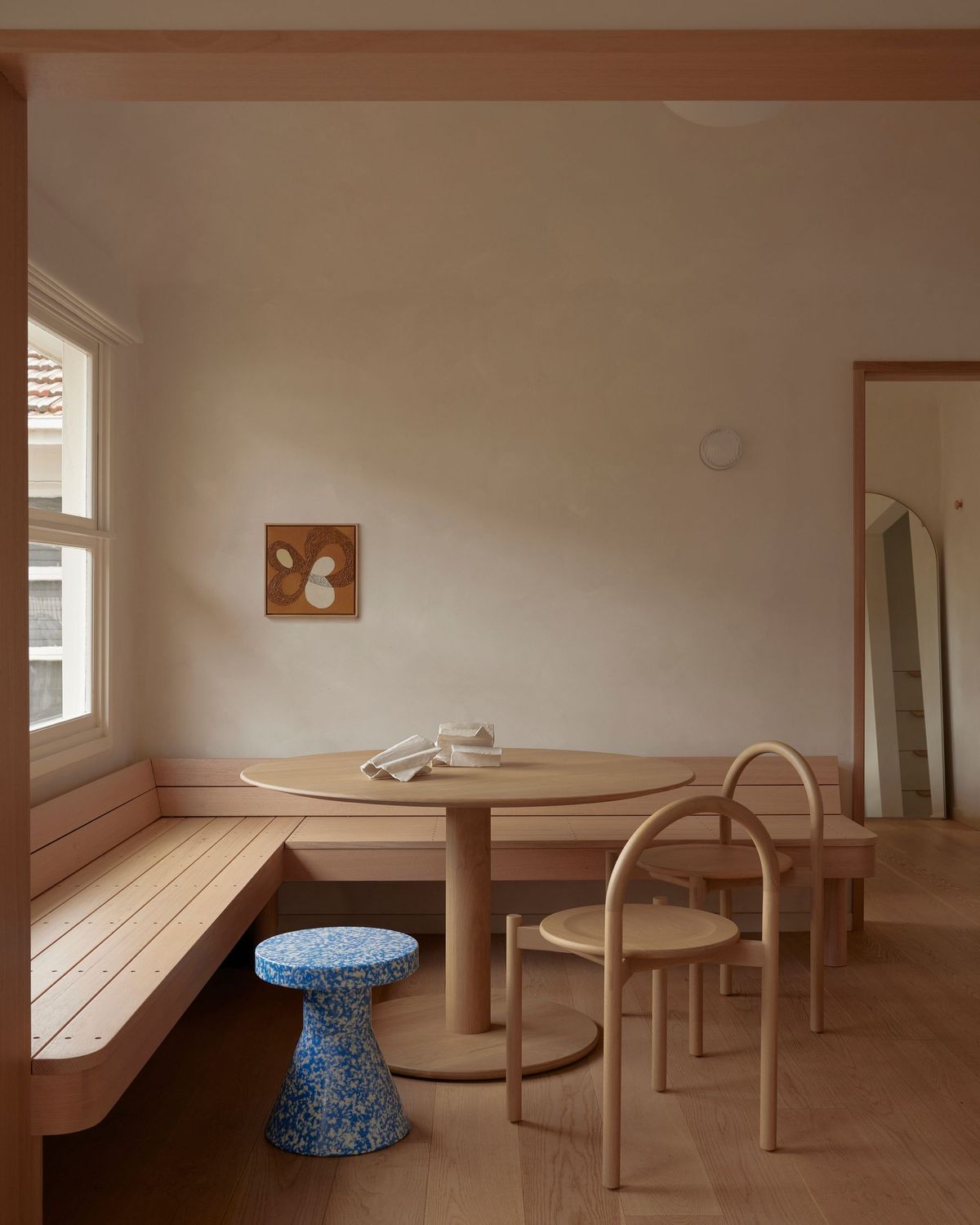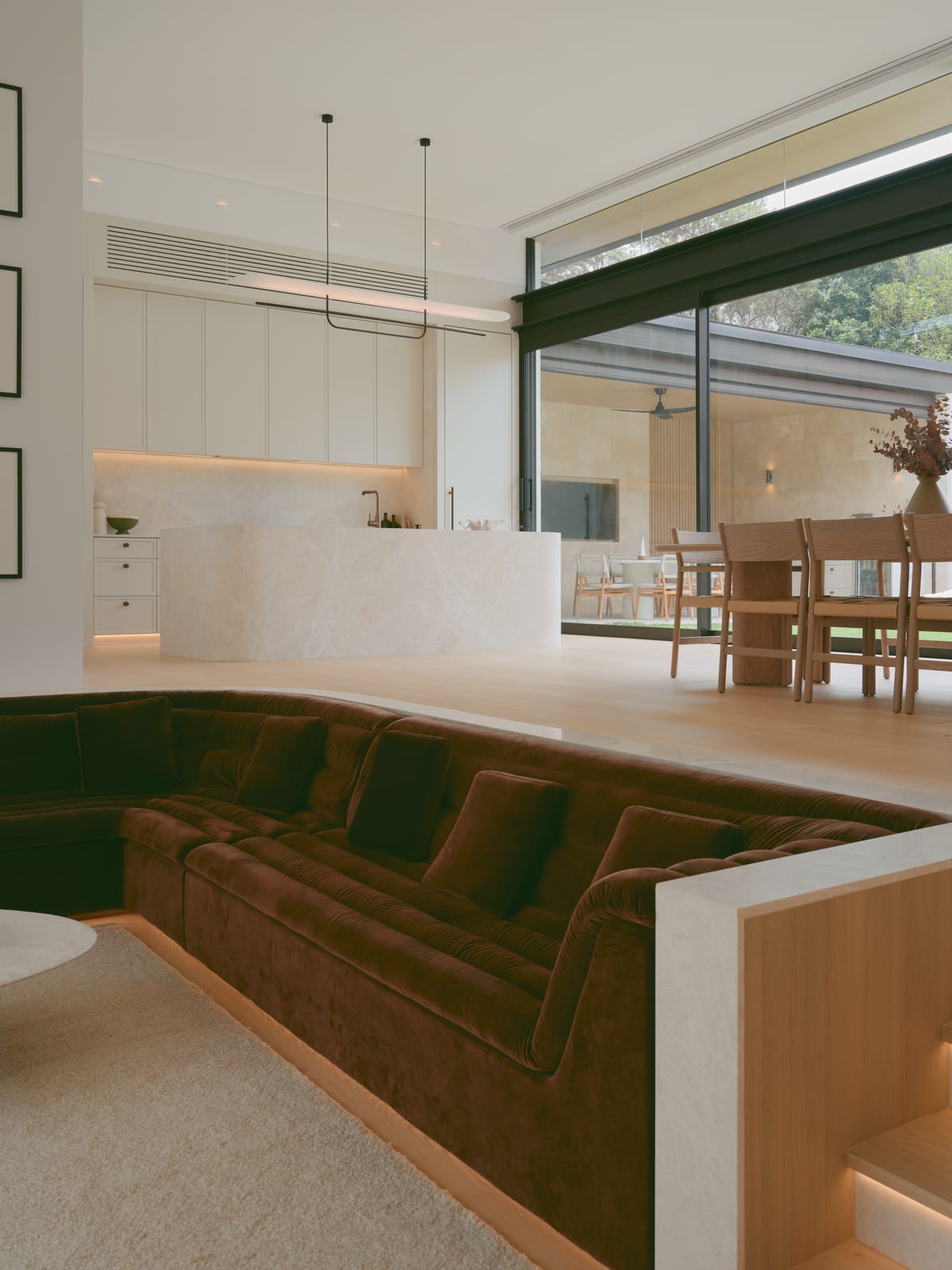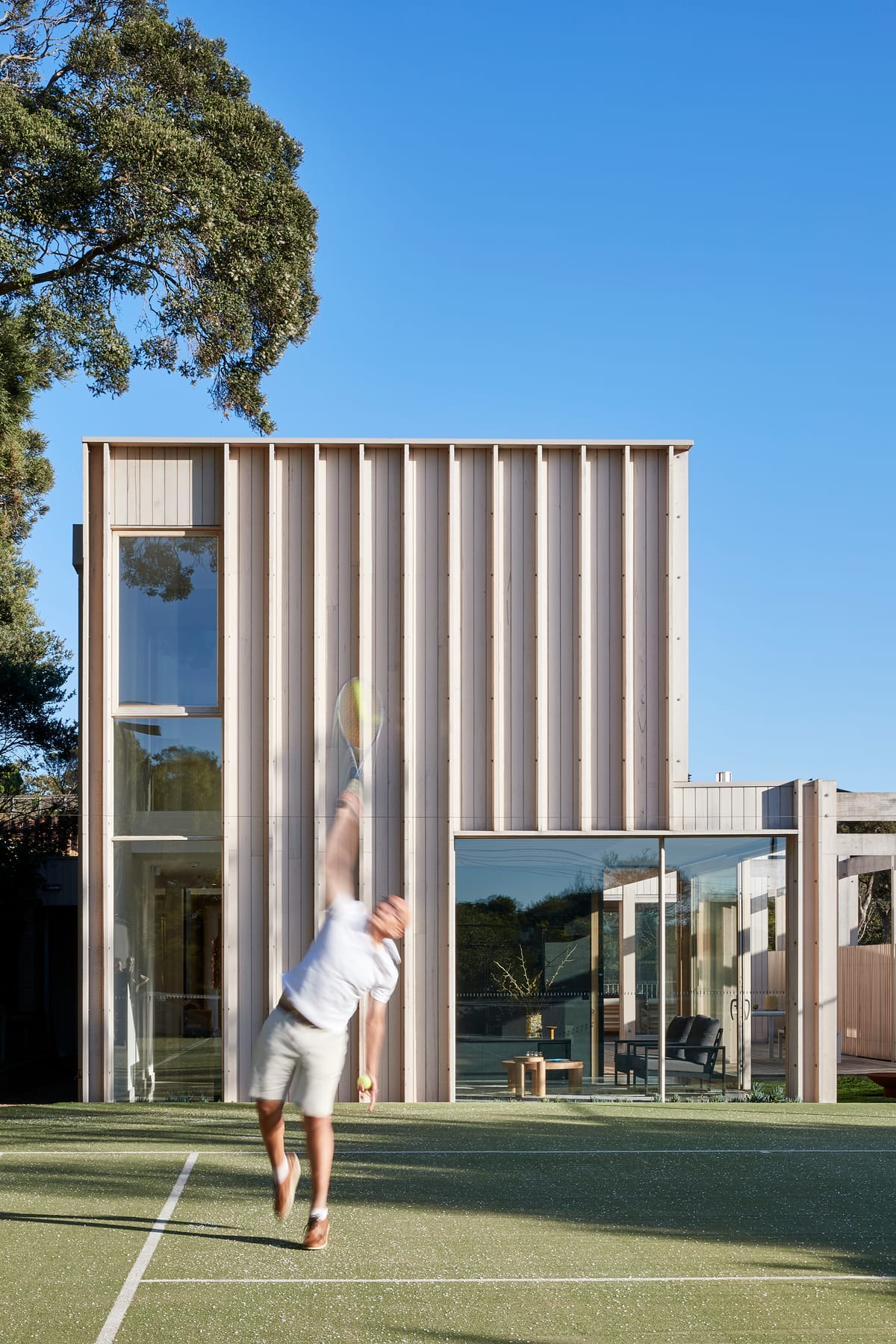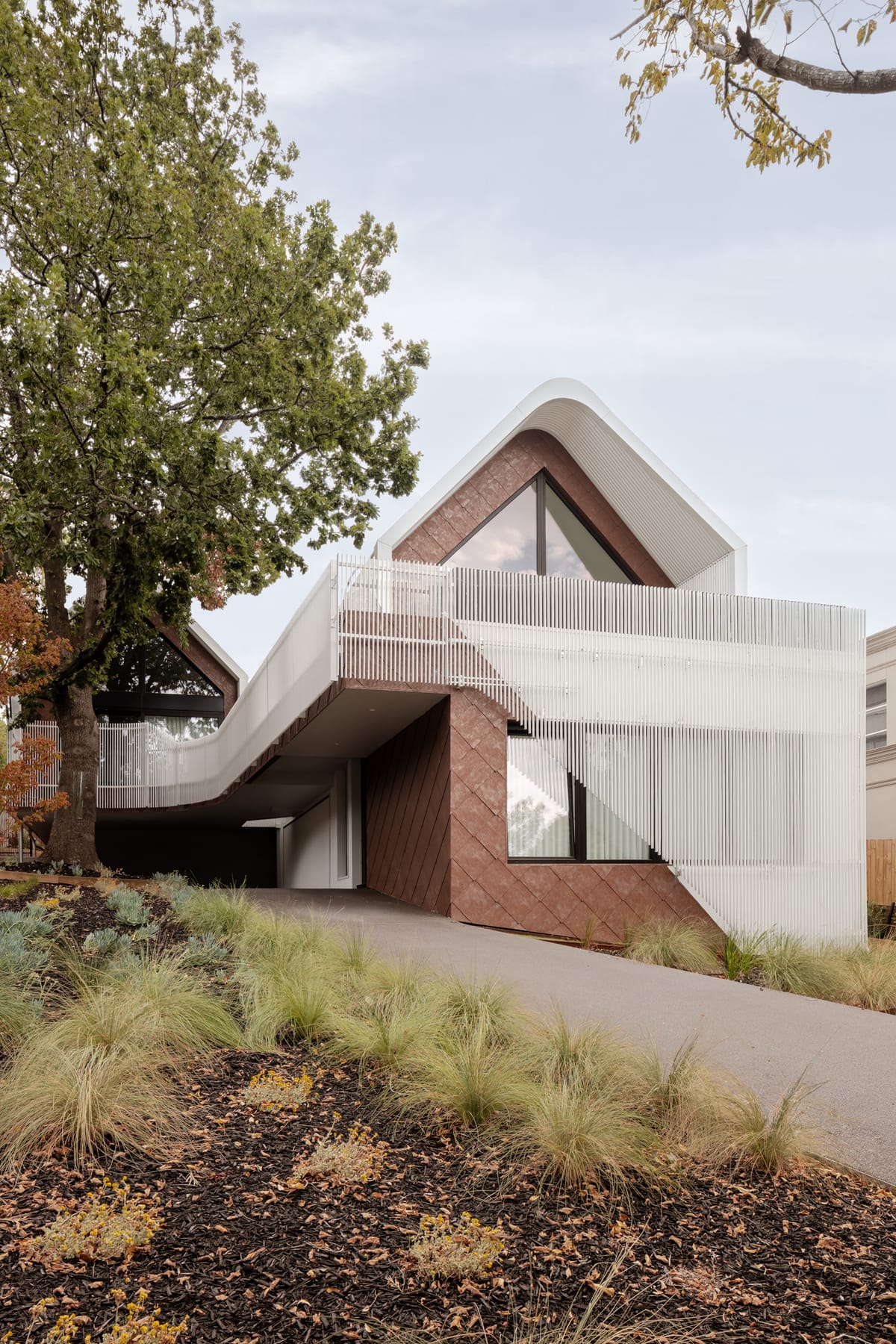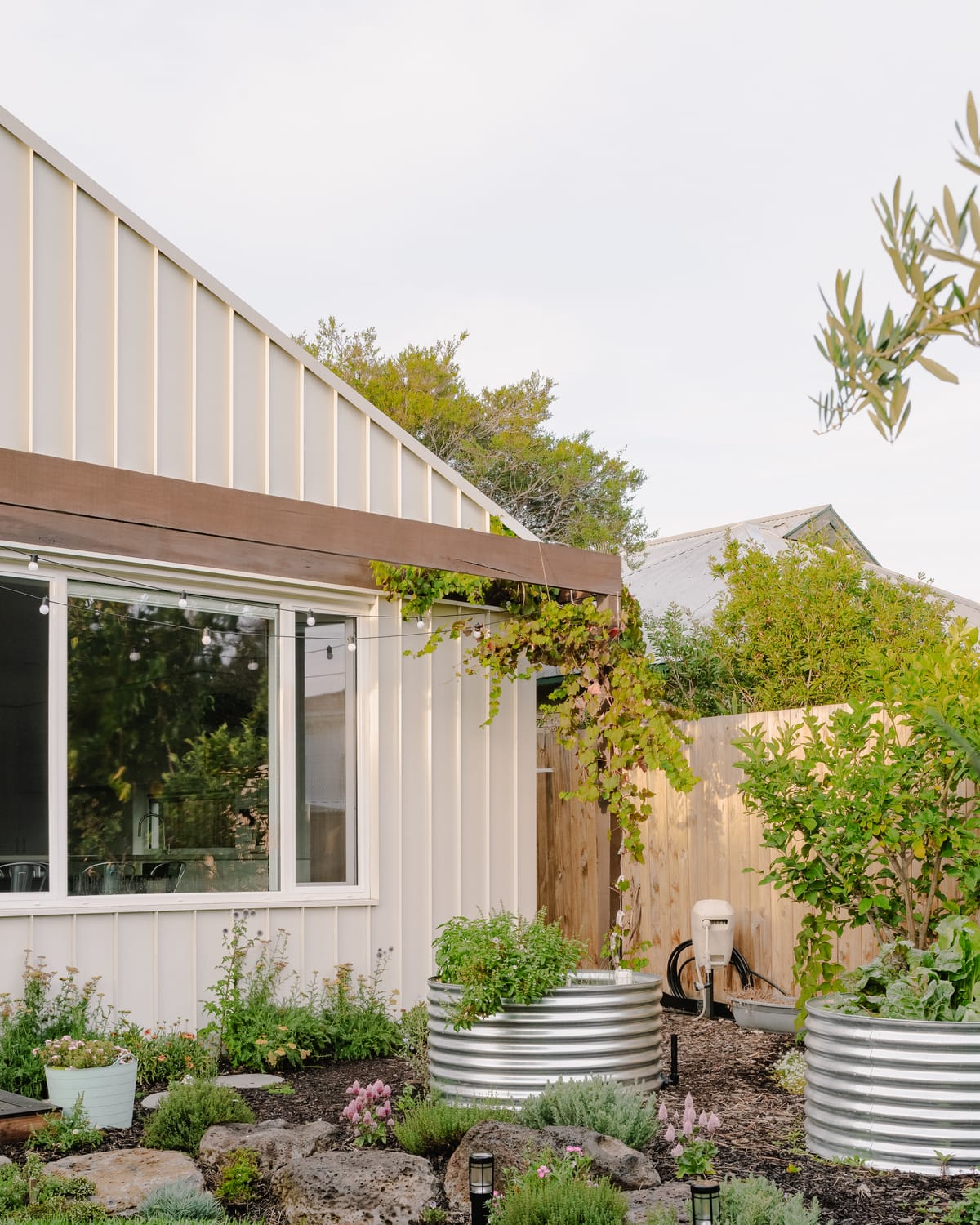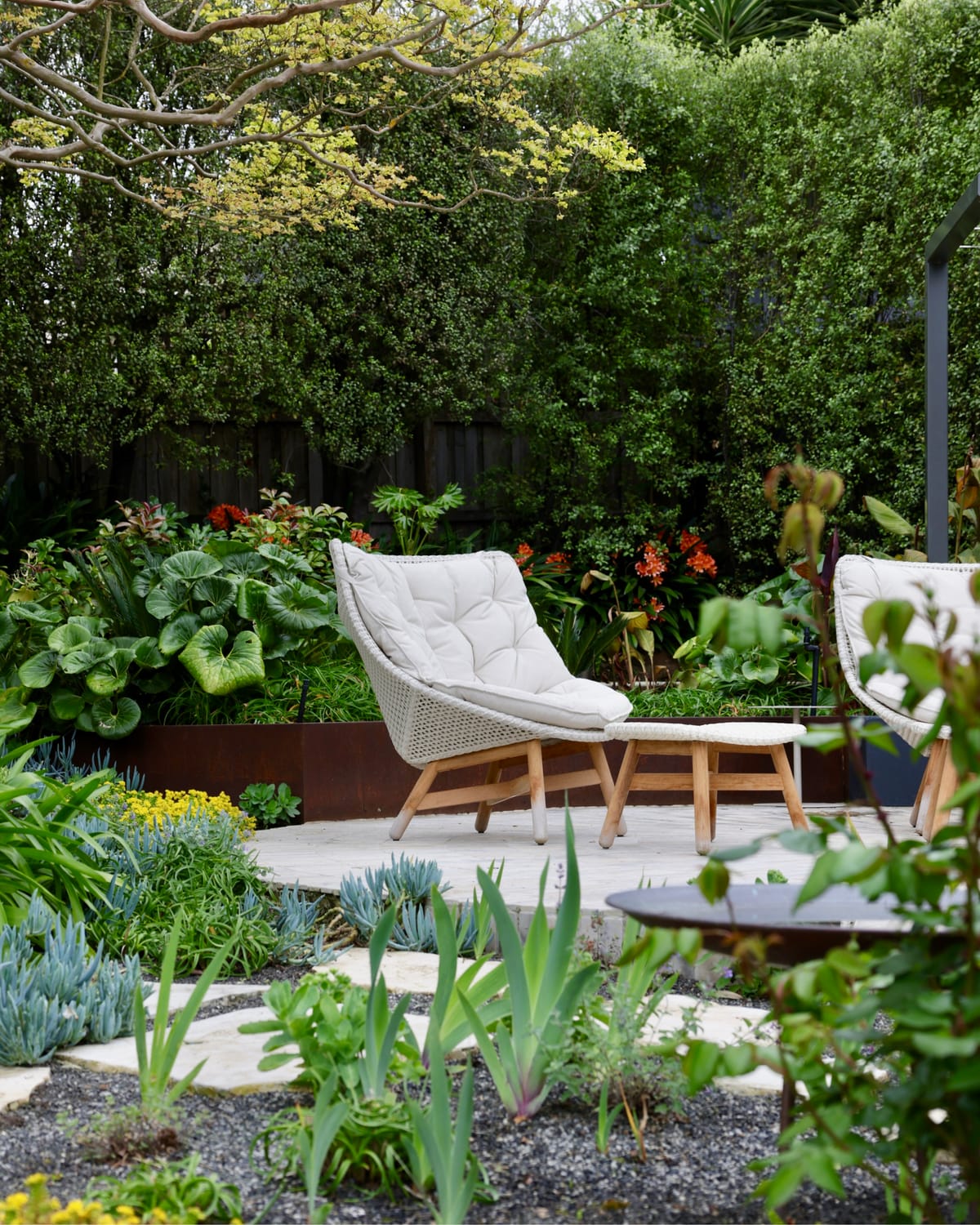This quaint two-bedroom sanctuary, a stone's throw from enticing surf breaks, treasured fishing spots, and a beloved local pub, exudes an enchanting allure. As seasoned voyagers across Australia and the U.S., the family found their hearts tethered to this locale, entranced by the idyllic surf-and-sea lifestyle it promised, befitting their love for coastal escapades.
Blair Smith Architecture undertook the monumental task of injecting vitality into the quaint 1950's interior. Their vision sought to sculpt a tranquil, deliberately curated haven that softly echoes the coastal landscape that cradles it. The Surf Shack is one of the eight standalone residences within the Harbour Gate complex and offers an exclusive rear pathway to the Portsea beach and the prestigious "Millionaires' Walk." This prime location showcases the crème de la crème of Mornington Peninsula properties and provides a swift journey to the local pier and the famed Portsea Hotel.
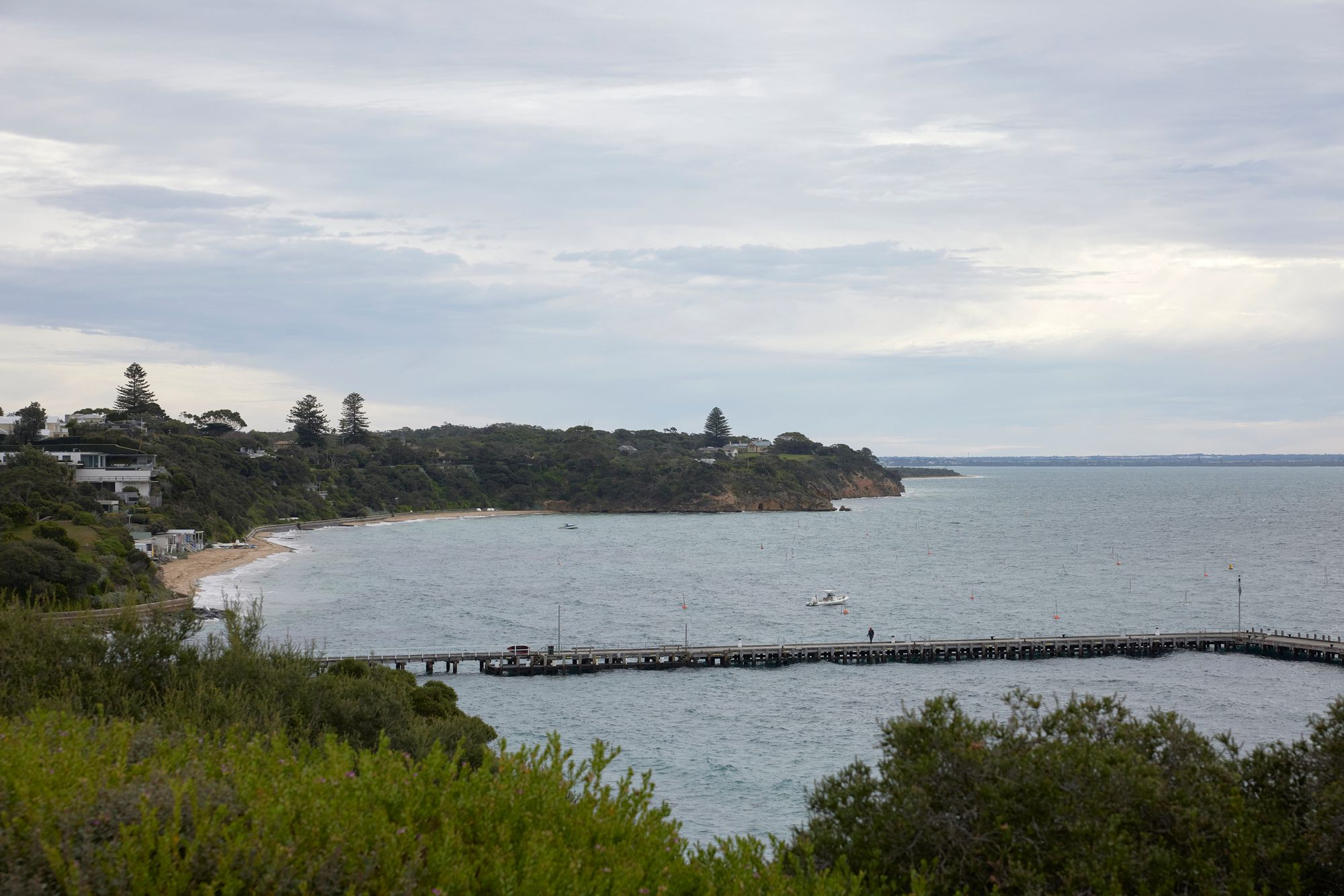
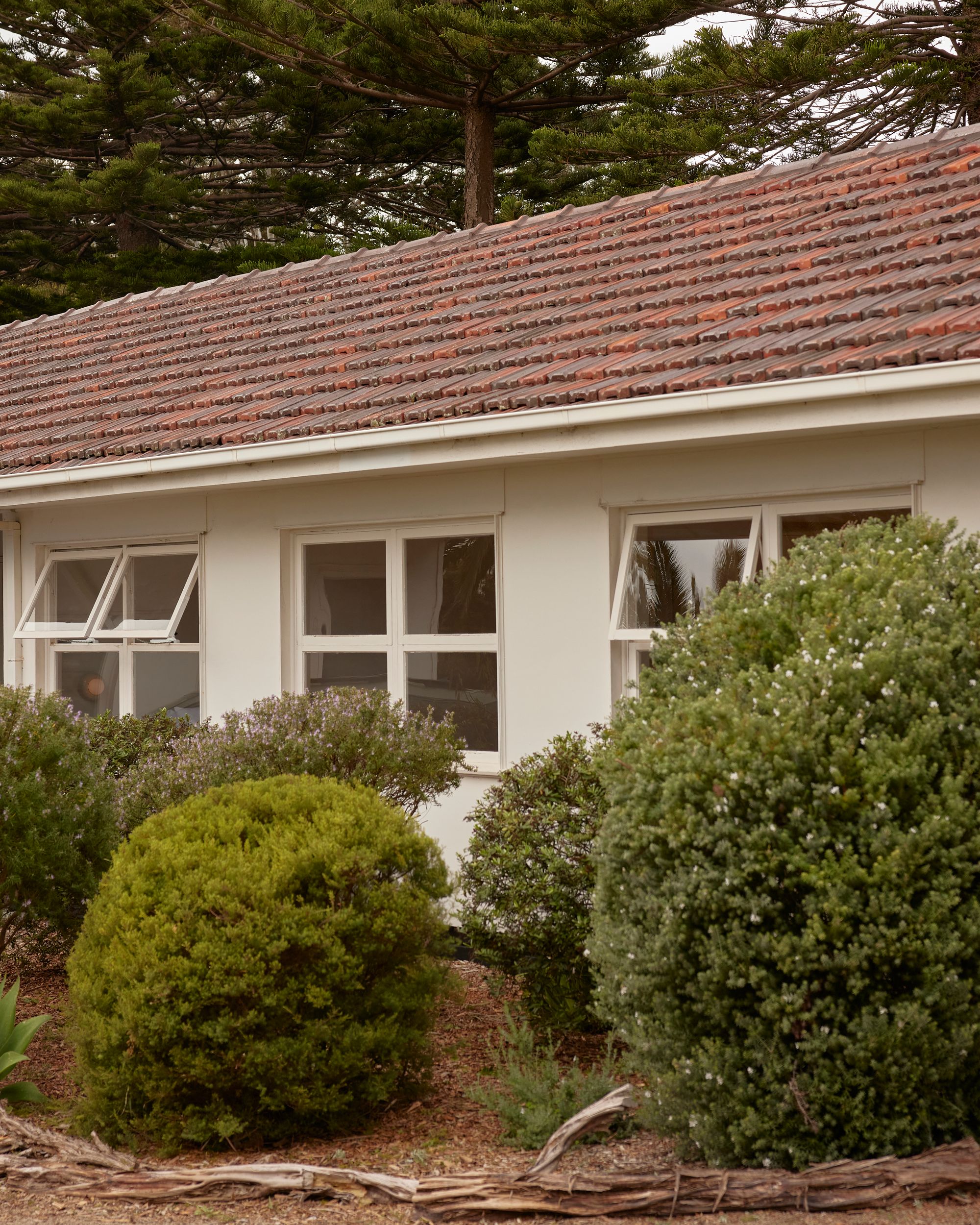
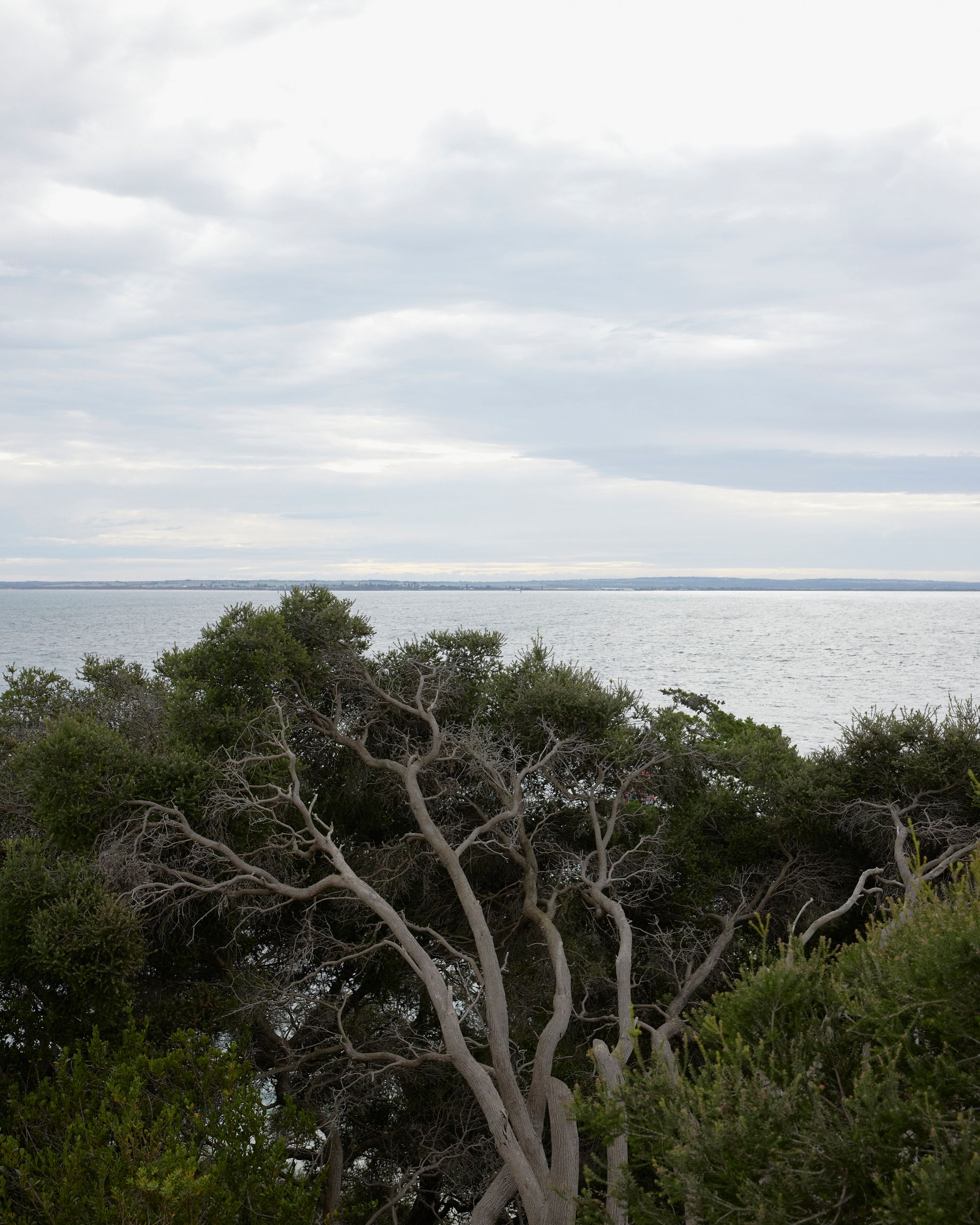
The architectural innovation of the Harbour Gate complex lies in an ingenious prefabrication system developed by architect Sir Bernard Evans in 1948 to address the post-war housing crisis. Despite its unassuming exterior, each unit features eight reinforced plaster domes, merged seamlessly through traditional construction techniques. The internal volumes and curved plaster were identified as valuable assets to be celebrated in the Surf Shack project.
The original layout, robust and spacious in certain areas, felt constricted in others. An inventive redesign of the kitchen saw space borrowed from a sizeable entry vestibule and a walk-in robe. This ingenious spatial redistribution transformed the kitchen from a snug, mobile home-like area into a welcoming space for familial culinary experiences. Embracing the building's original spatial 'separation', new furnishings were styled as individual elements - the detached kitchen island with its curved corners, the banquette seat outlining the dining area, and a round-legged, stone-top bathroom vanity. The addition of timber trims at each room's entrance enhanced the home's unique charm.
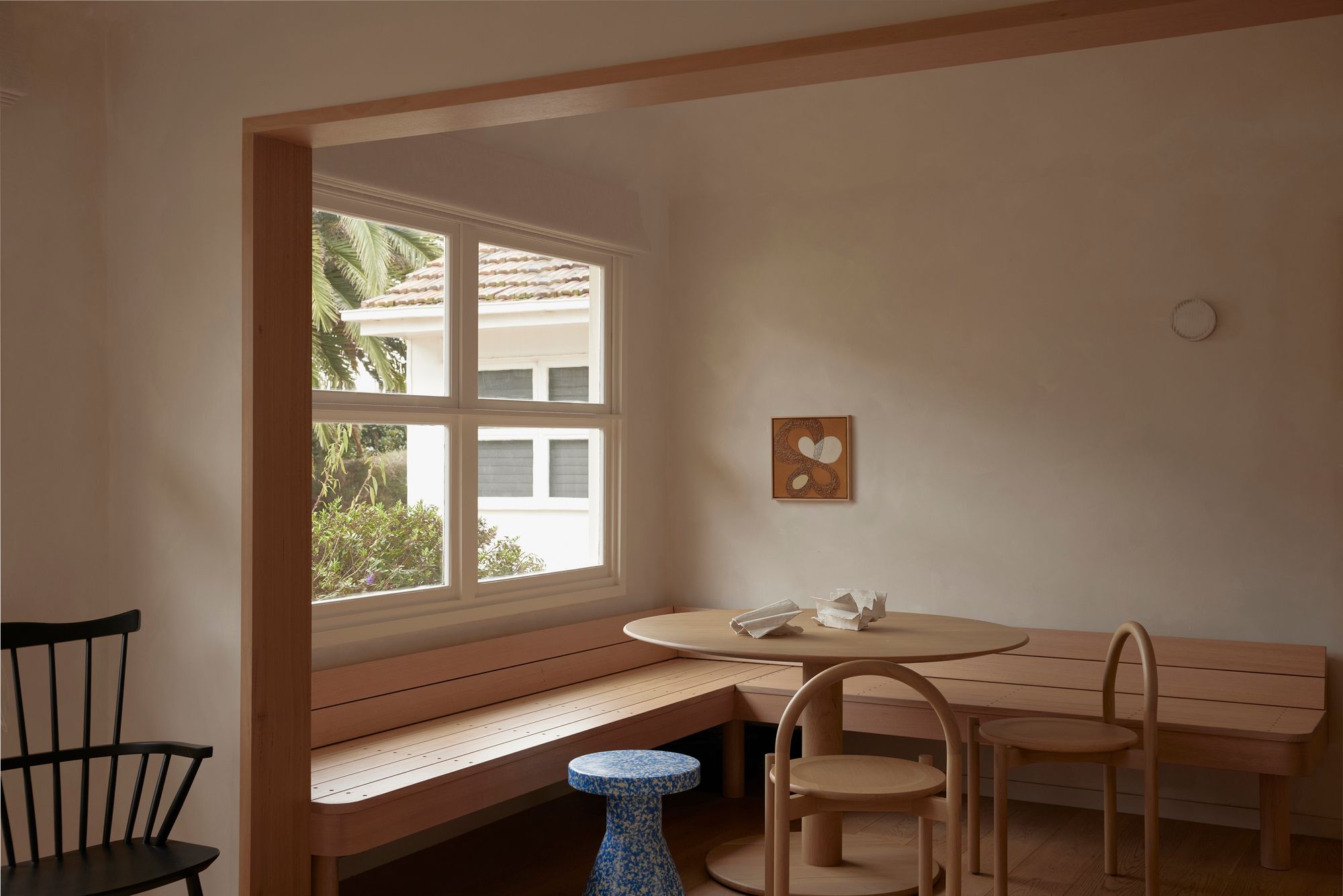
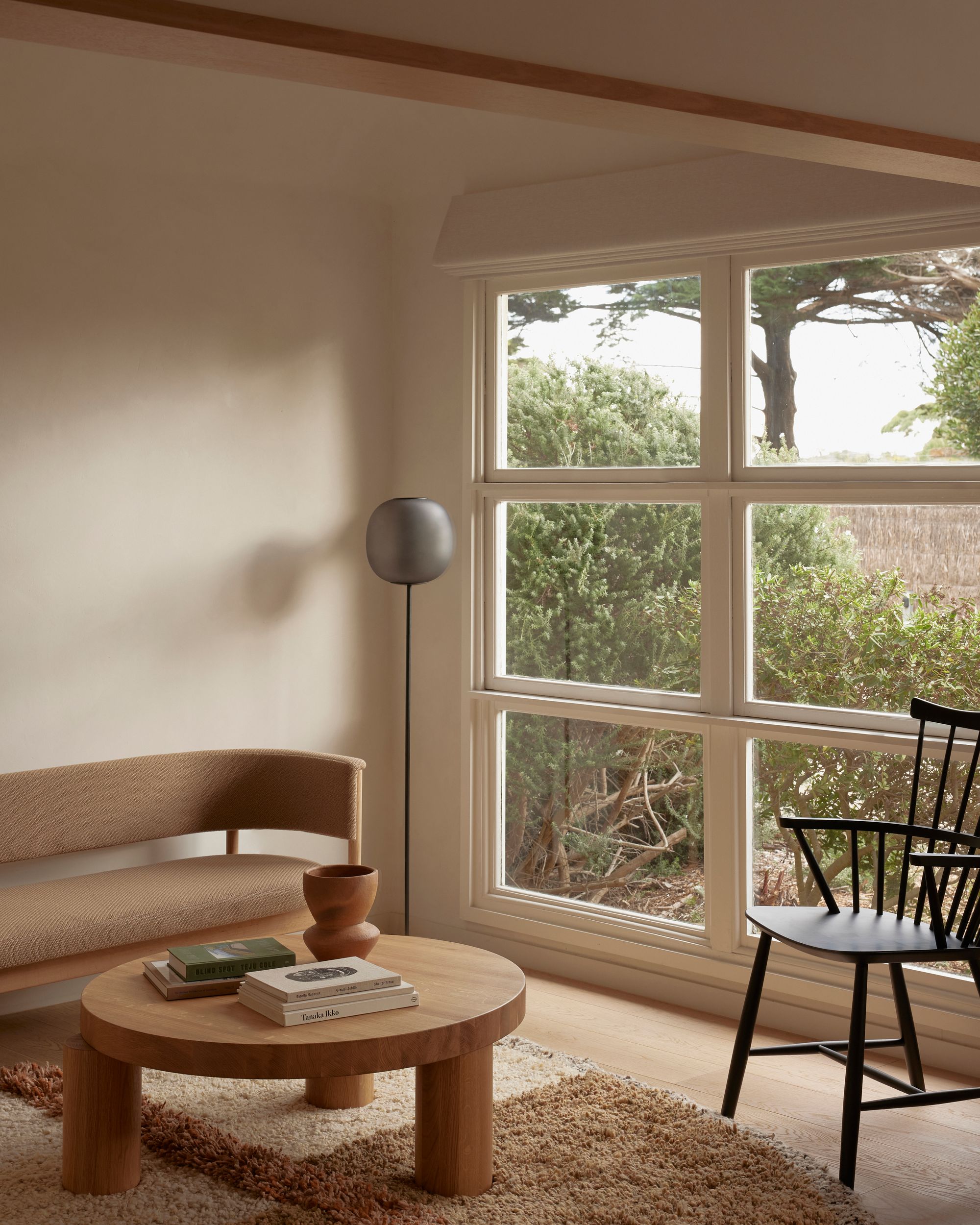
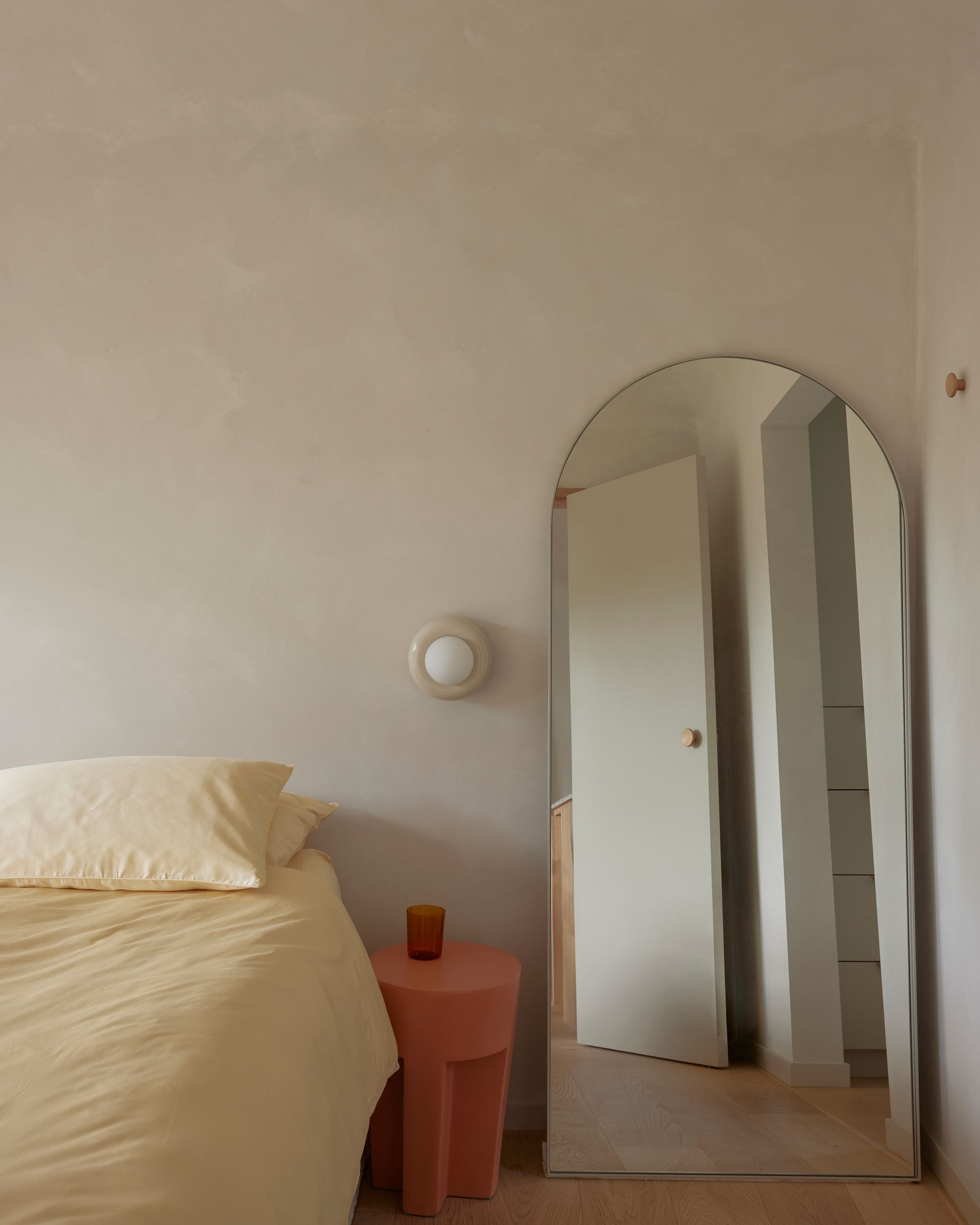
The residents sought a muted material palette that subtly echoed the coastal ambiance of their dwelling. A pivotal design choice was the application of breathable, lime-based paint with a delicate texture to the plaster domes and walls. This not only amplified the aesthetics of the domed structures but also fulfilled a functional requirement, permitting the aged plaster to breathe. A sandy paint finish mirrors the beach's sandy shoreline, serving as a subtle backdrop to spotlight the house's unique design facets. The inclusion of a limestone kitchen bench harks back to Portsea's limestone quarrying history, while the muted hues of the cabinetry mirror the local coastal scrub, extending to a bathroom adorned with handmade tiles and terrazzo for a post-swim retreat.
The Bathing Boxes on Portsea Front Beach served as a source of inspiration for the project team, exemplifying how compact spaces can be cleverly optimised. This ethos of 'essential' living runs deeply through the Surf Shack project, reflecting both in its aesthetic appeal and functional design.
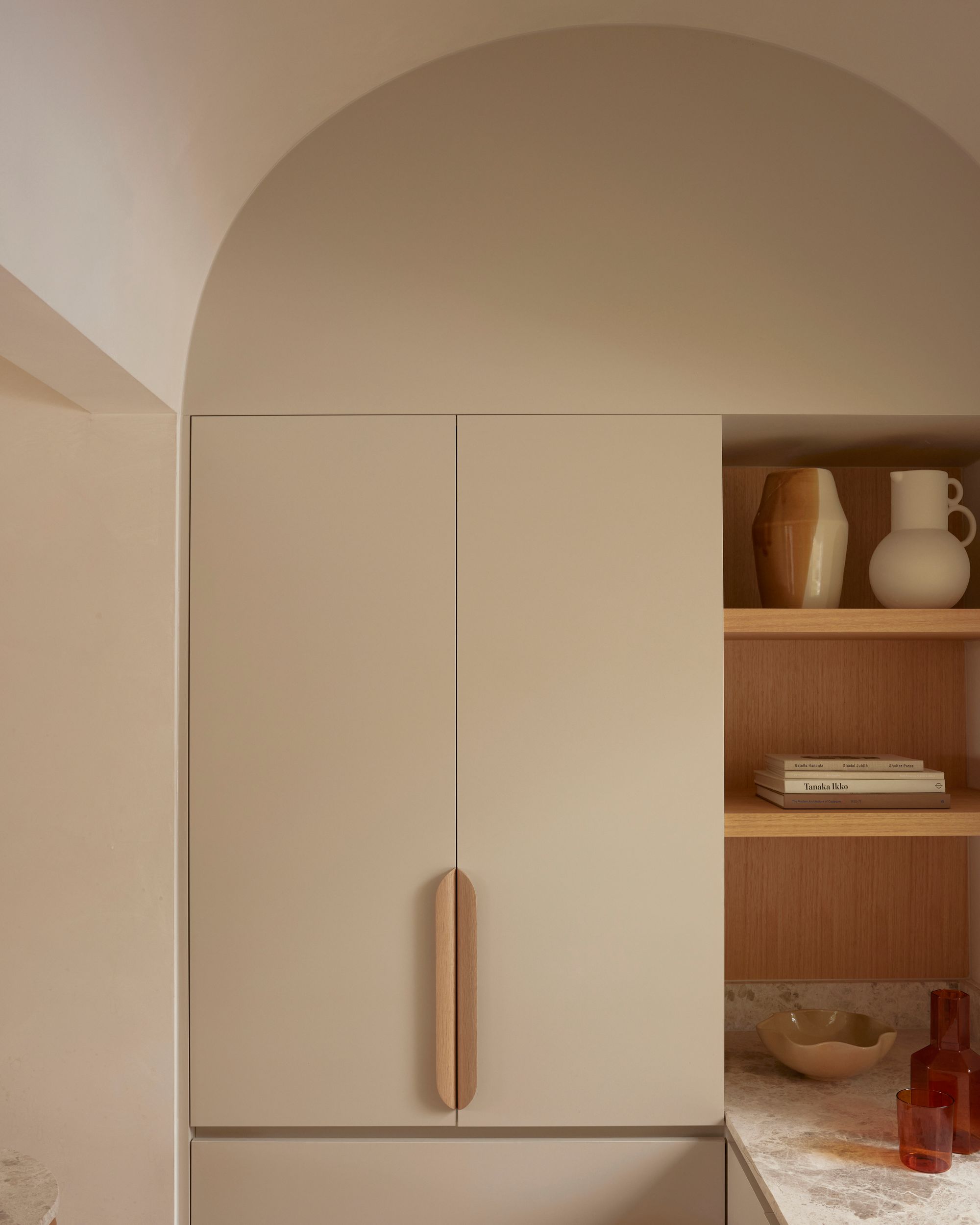
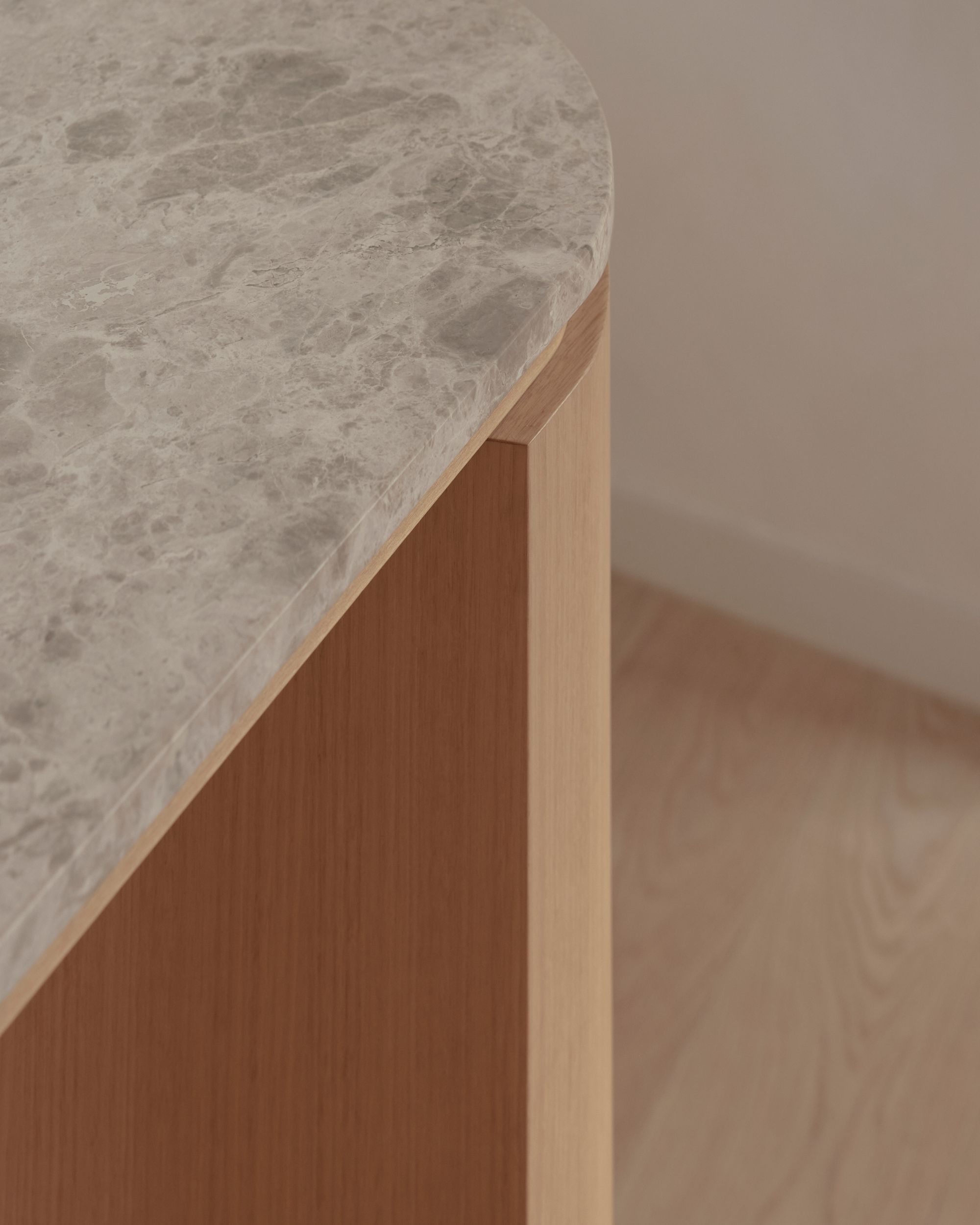
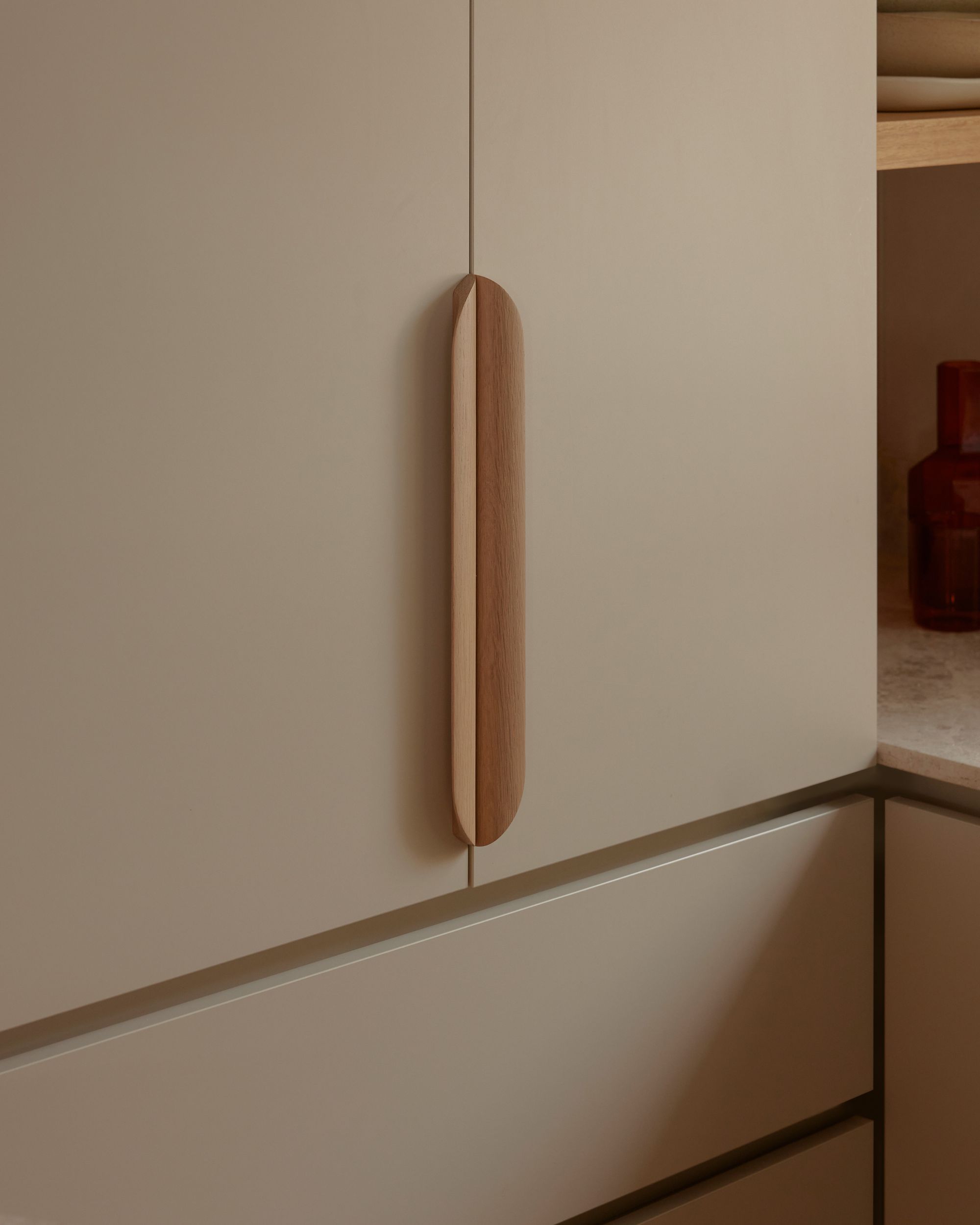
Portsea Surf Shack by Blair Smith Architecture. Photography by Sean Fennessy
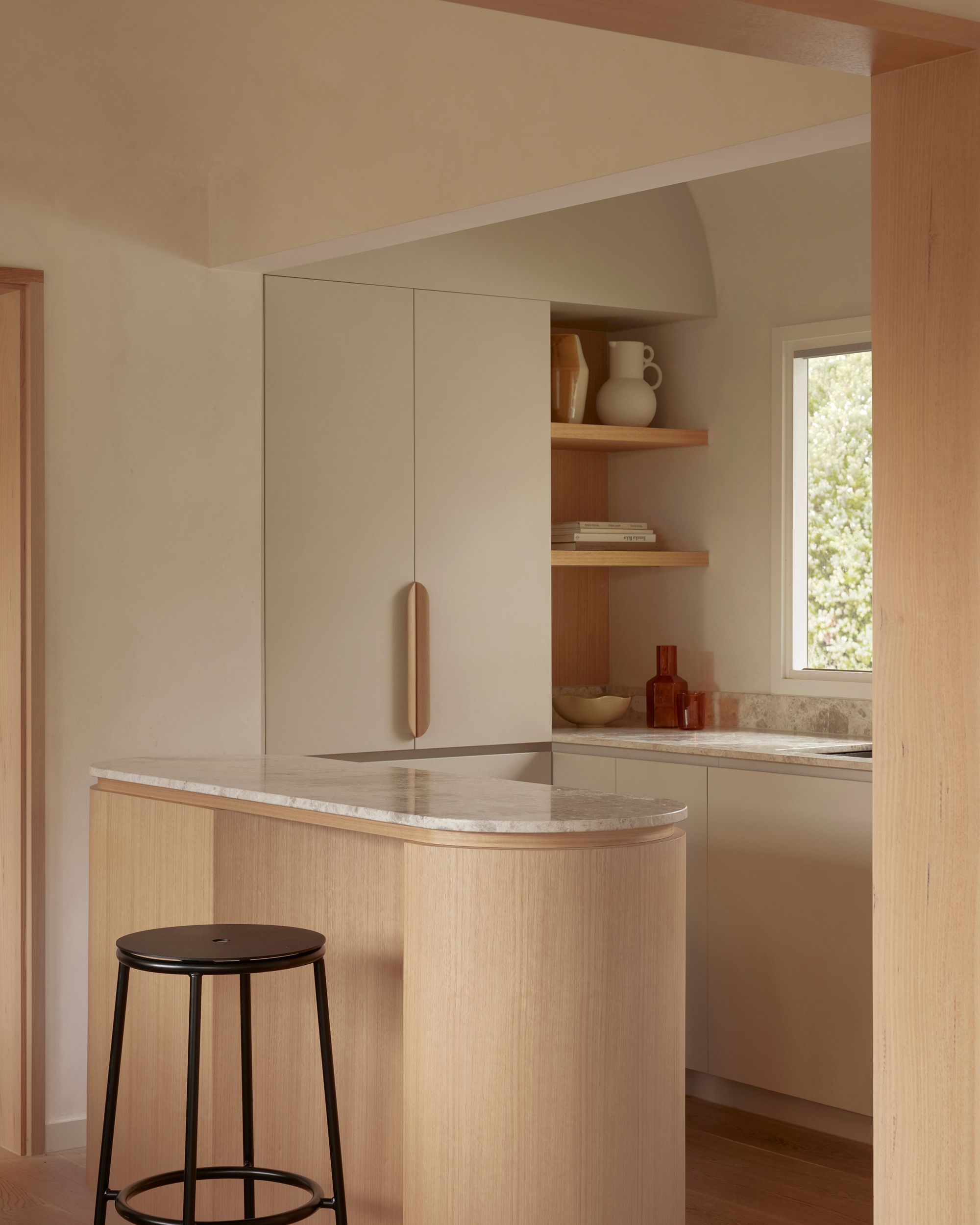
The resurgence of the Portsea Surf Shack is a testament to the potential of compact coastal living. Combining the allure of the 1950s charm with the simplicity of modern minimalism, it seamlessly integrates historical echoes with the irresistible charm of the sea, waves, and sand.
Project details
Location: Portsea, VIC, Bunurong Country
Architecture & Interiors: Blair Smith Architecture
Project team: Jack Heatley and Blair Smith
Builder: LUBU Building Group
Stylist: Jessica Lillico
Joinery: Matt Clarke Kitchen and Design
Photography: Sean Fennessy
CO-ARCHITECTURE COMPANY PROFILE
Find out more about Blair Smith Architecture via their CO-architecture Company Profile
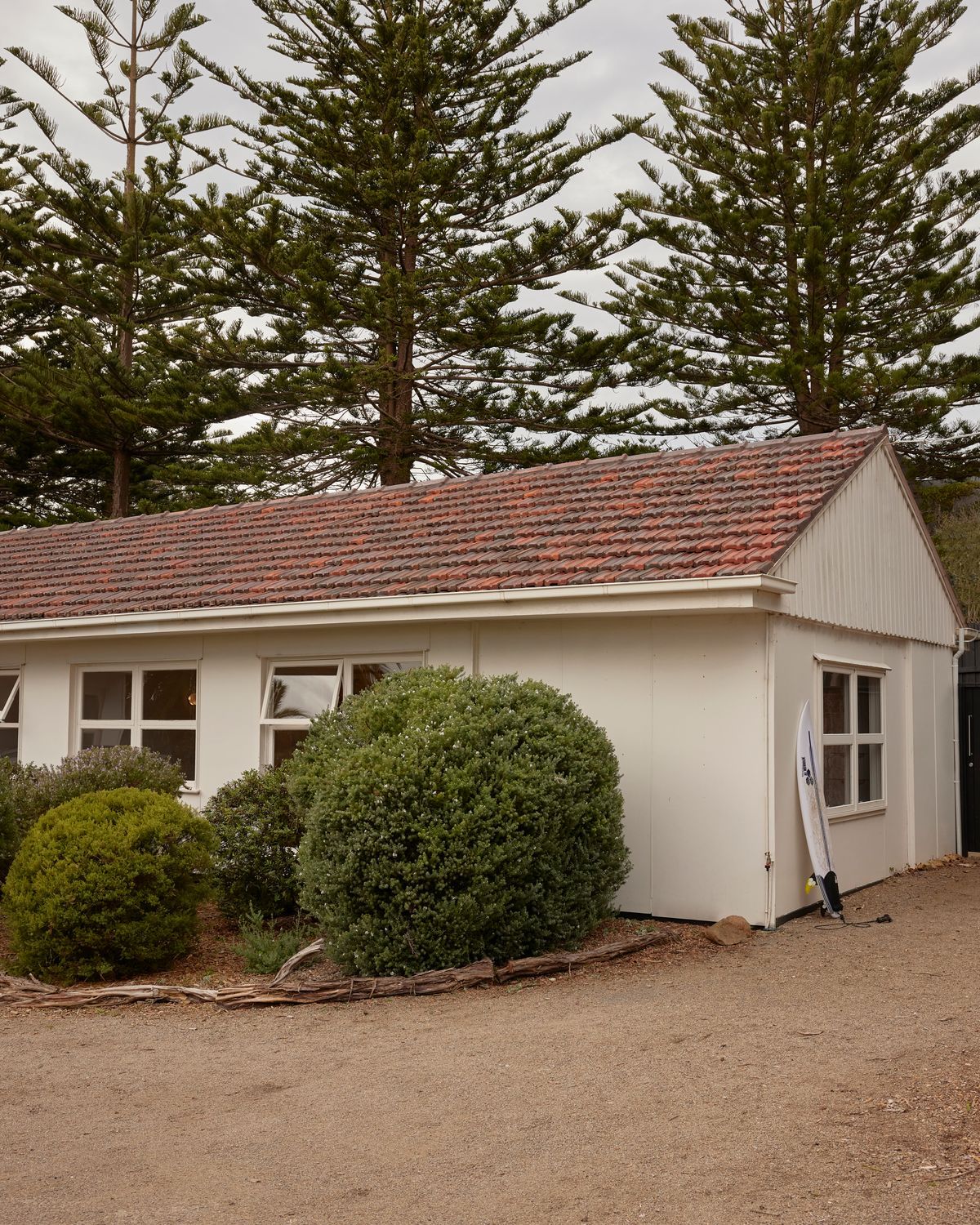
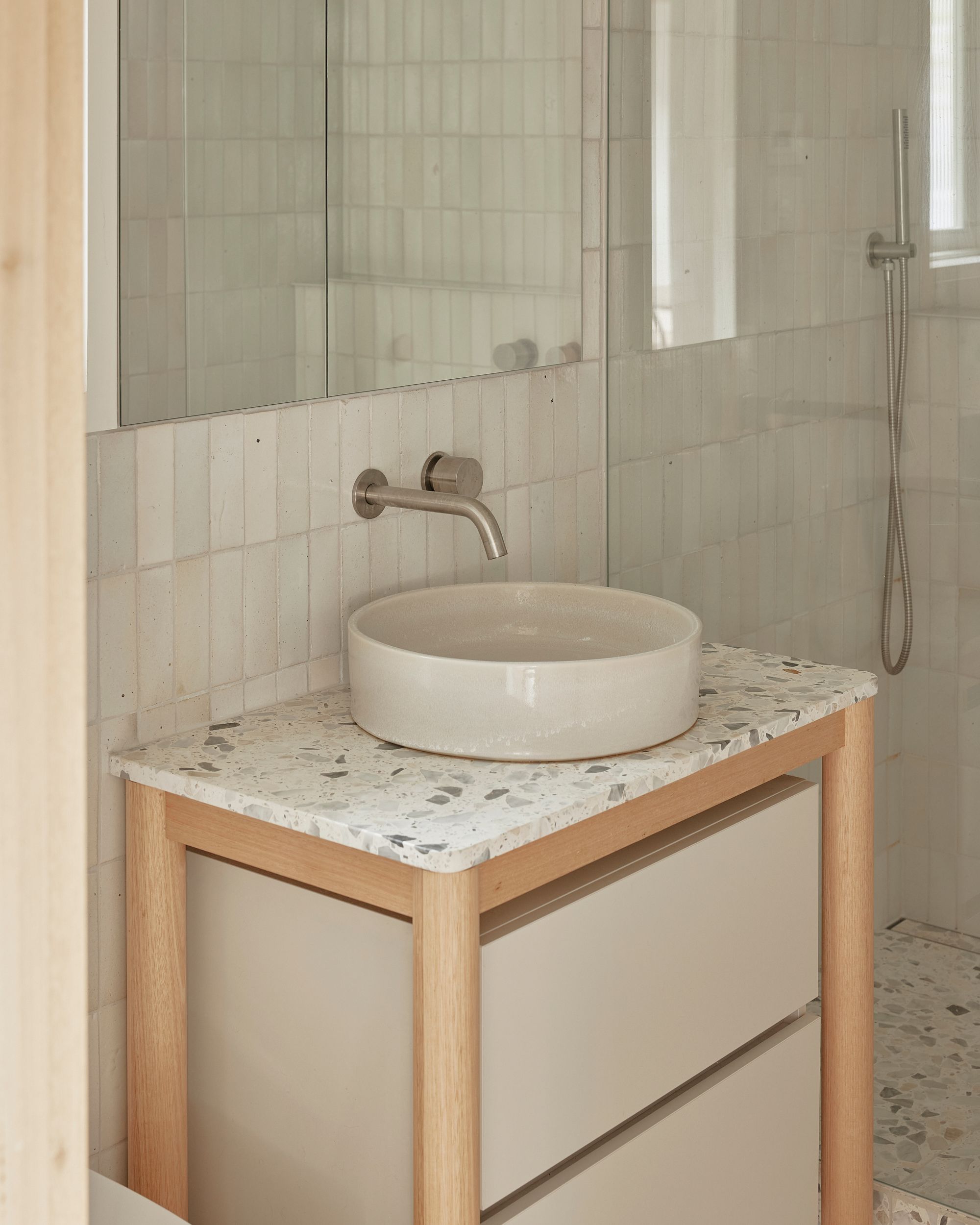
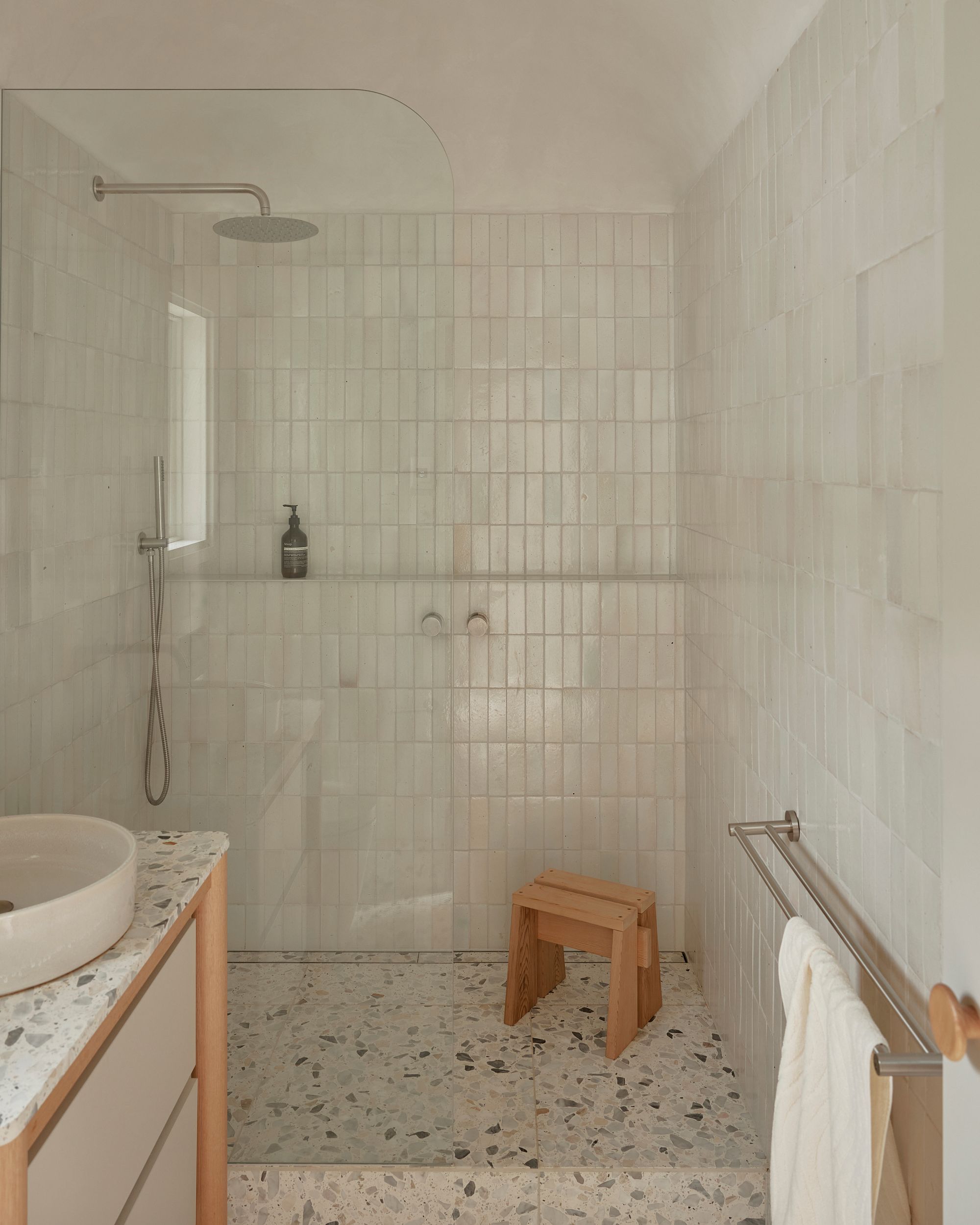

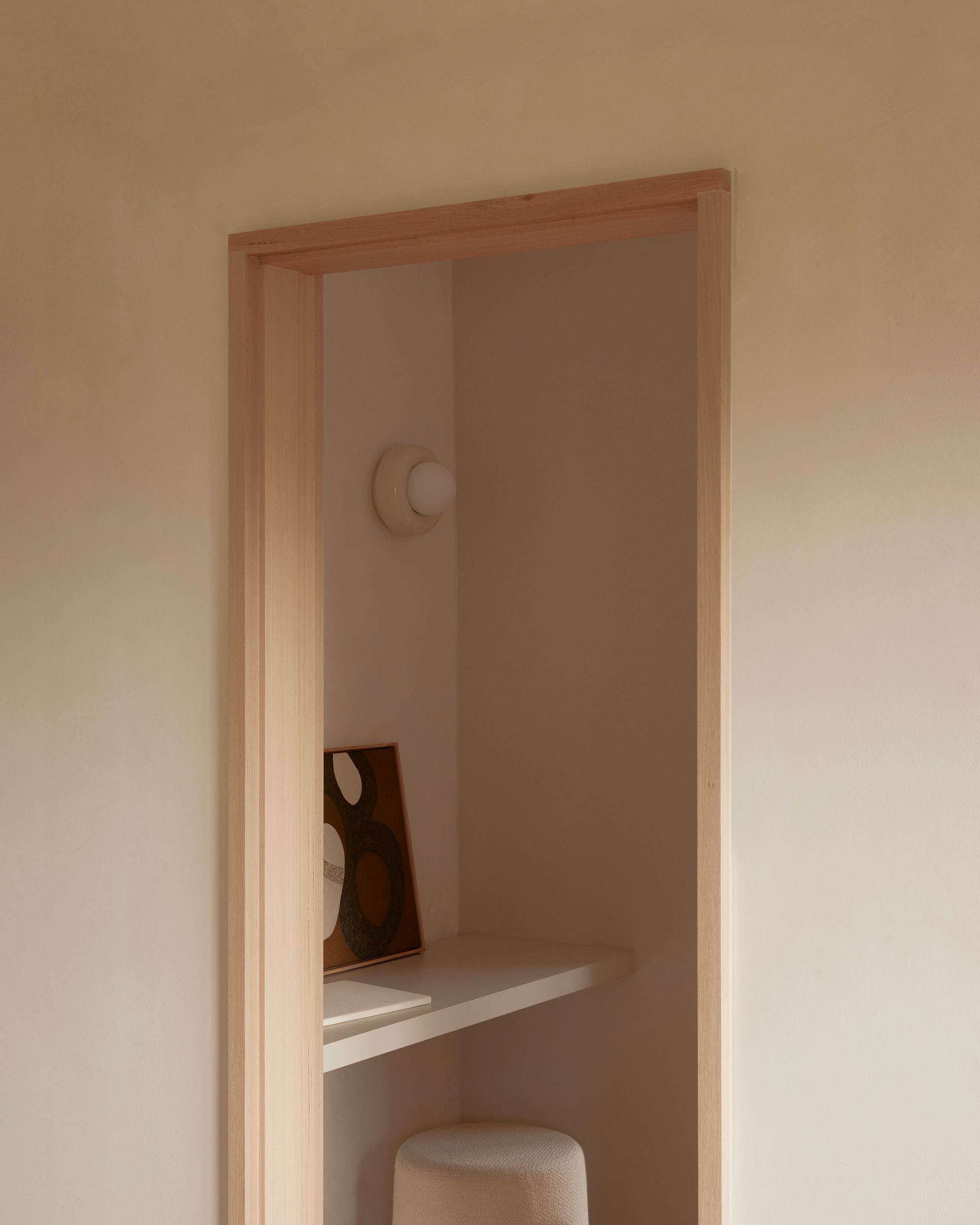
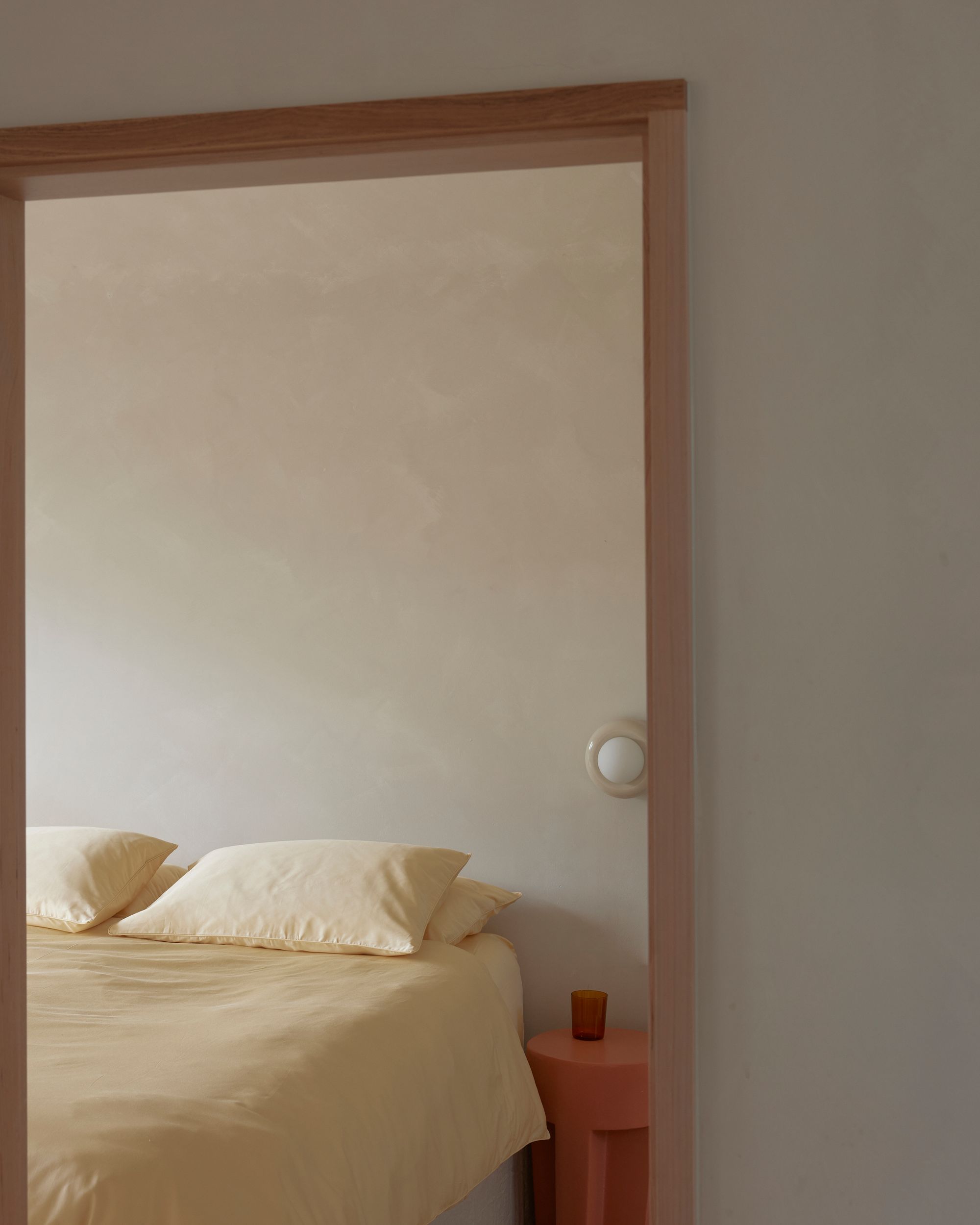
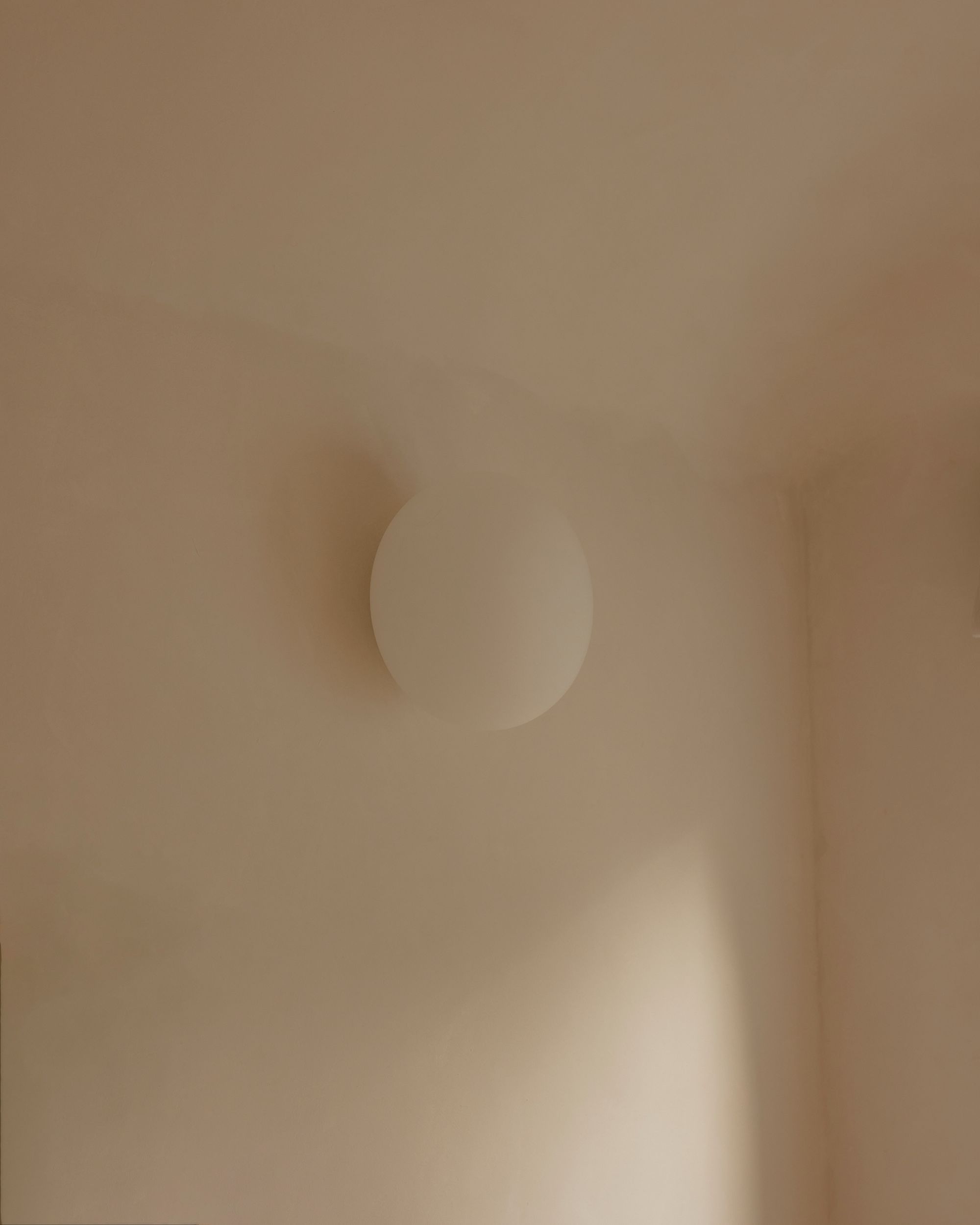
Portsea Surf Shack by Blair Smith Architecture. Photography by Sean Fennessy


